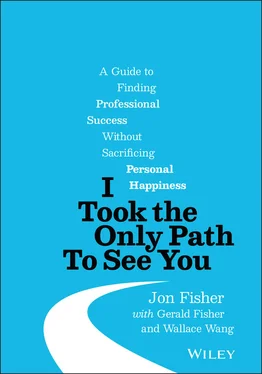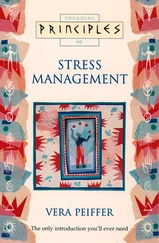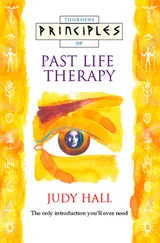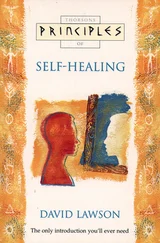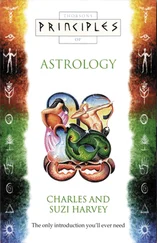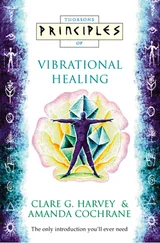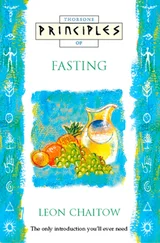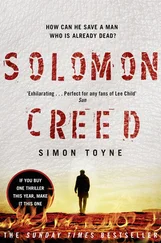For every Debbi Fields or Walt Disney, there are thousands of people happily pursuing their passion in all walks of life all over the world. You may have never heard of these people but you can recognize them because they've chosen a life they enjoy every second of the day.
Everyone has a different passion, so the only person who can discover what your passion might be is you.
Take the time now to decide what you're most passionate about. If you don't know, stop reading right now. Then spend however much time you need to find your passion, because if you don't find it now, it will be too easy to let inertia take over so you drift through life with no purpose, direction, or meaning whatsoever. Finding your passion literally defines your life.
The huge difference between passion and fantasy is that fantasy focuses solely on a goal (and all its benefits), while passion focuses on both a goal and the activity needed to achieve that goal.
MONEY WILL NEVER MAKE YOU HAPPY
Perhaps the biggest myth that too many people believe is that money will make them happy. Yet they never define how much money would make them happy. If you had a dollar more, would you be happy? A thousand dollars more? A million? Ten million?
I guarantee that whatever amount of money you think will make you happy will never be enough because money alone can never make you happy. People think money will make them happy, but evidence consistently shows how wrong that can be.
Many people play the lottery because they fantasize about winning a fortune. Yet the list of multimillion-dollar lottery winners who consistently fail to find happiness is horrifying.
In 2002, construction company owner John Whittaker won $315 million in the Powerball lottery. Yet within five years, he had spent all his money. Even worse, his granddaughter developed a drug habit and died. When asked about his lottery winnings, Whittaker and his wife said if they could go back in time, they'd tear up that lottery ticket.
Evelyn Basehore won $3.9 million playing New Jersey's lottery. Incredibly, she kept playing the lottery and won another $1.4 million. Yet all that money went to relatives and poor investment choices. Then she gambled away the rest of the money in Atlantic City casinos, leaving her broke and forced to live in a trailer park, where she had to work two jobs just to pay her bills.
Abraham Shakespeare won $30 million and suddenly found himself hounded by people who wanted a share of his fortune. Before Shakespeare got murdered by his girlfriend, he told his few remaining friends, “I'd have been better off broke. I thought all these people were my friends, but then I realized all they want is just money.”
Still think money can buy happiness?
People want money because they think more money represents freedom. Money does give you more opportunities, but that also means more opportunities to screw up. When people say they want more money, what they're really saying is that they want more material possessions.
Just watch professional athletes who sign multimillion-dollar contracts and rush out to buy three sports cars, two homes, a stable of race horses, and a yacht. Buying objects that you couldn't afford before can be fun, but that enjoyment will only be momentary.
After that initial feeling of euphoria passes, you'll be left searching for happiness all over again. You can only spend so much and buy so many objects before you run out of money and lose track of all the objects you bought. If you can't define a precise dollar amount that will make you happy, that's a big clue that more money will never make you any happier in the long run.
If a doctor said you had one day left to live, what's worth more? A billion dollars or a cure that would keep you alive?
REACHING GOALS ALONE CAN'T MAKE YOU HAPPY
Rather than just wish for more money, some people wish to reach a certain goal in life. That's why so many people dream of becoming A-list movie stars, popular musicians, or famous entrepreneurs. There's nothing wrong with lofty dreams, but what is wrong is thinking that once you reach your goal, you'll achieve happiness.
Read any celebrity news and you'll find plenty of rich, famous people who still aren't happy. The list of popular movie stars and recording artists who died young is tragically long. While some died in accidents, far more died through their own self-destructive behavior, whether through alcohol poisoning, drug overdoses, or outright reckless behavior.
Why do so many celebrities destroy themselves after achieving what they thought would be their greatest dream? Most likely, these celebrities worked their whole lives to achieve fame and success, yet discovered when they finally reached their goals that the happiness they sought for so long had somehow still managed to elude them.
Now what?
Beyond the empty feeling that comes from any disappointment, there's a second problem that comes from striving to reach a goal that you think will bring you happiness. Far too many people make tremendous sacrifices in their lives to reach their dreams, which often means spending less time with friends and family and more time desperately pursuing your dream. When you make that type of trade-off, you've already lost.
Whether you reach your goal or not, living a life without any loved ones will be a lonely existence that can never be replaced with more money to attract fair-weather friends. When you're surrounded by people you barely know with motives that may be highly questionable, all the money and success in the world can't make you feel any less lonely.
If you tie your happiness to becoming a movie star, recording a hit album, or starting a million-dollar company, you'll be highly motivated to do whatever it takes to reach that goal. This intense motivation to succeed can tempt you to sacrifice anything and everything to get it. After all, who wouldn't want to be happy? If you can reach your goal, then it should all be worth it if you can be happy, right?
Wrong.
To achieve their dreams at all costs, people often lie, cheat, and steal. If you have to break the law, violate your own principles, or step on others to get what you want, you can never be a success even if you do achieve your goal.
When you define happiness as a destination to reach, you may justify doing anything to get there. This can't help but create enemies and destroy personal and professional relationships along the way and then what? Reaching a destination, like buying a shiny new toy, may give you a feeling of momentarily happiness, but you must always deal with the consequences afterward.
Ultimately, whether you believe happiness lies in reaching a destination or owning a particular object, you'll be disappointed. Reaching a goal or buying a certain item might make you happy for an instant. Yet after that momentary feeling of euphoria wears off (and it will), you'll risk thinking you just need to get more of the same thing to be happy again, which can start this vicious cycle of no-return all over again.
This is no way to live.
Life can be fun with or without money, success, or fame. I consider myself successful not because of my achievements, who I know, or what I've done, but because I know the two keys to being happy.
First, happiness is never static. That's why you can never achieve lasting happiness just by reaching a goal or buying something you like. Think about a happy moment in your past and you'll realize that happiness is always temporary and fleeting. Happiness isn’t an object you can possess but an action you experience. You can never find happiness; you can only create it through action. The moment you stop, happiness disappears.
The type of action that creates happiness is different for everybody because it depends on what you're most passionate about. Author Stephen King spent years working as a janitor, gas pump attendant, and worker in an industrial laundry, but he continued to write because that's what made him happy and gave him hope for a better future. Without his writing to make him happy, Stephen King's early life would have felt desperate and bleak.
Читать дальше
